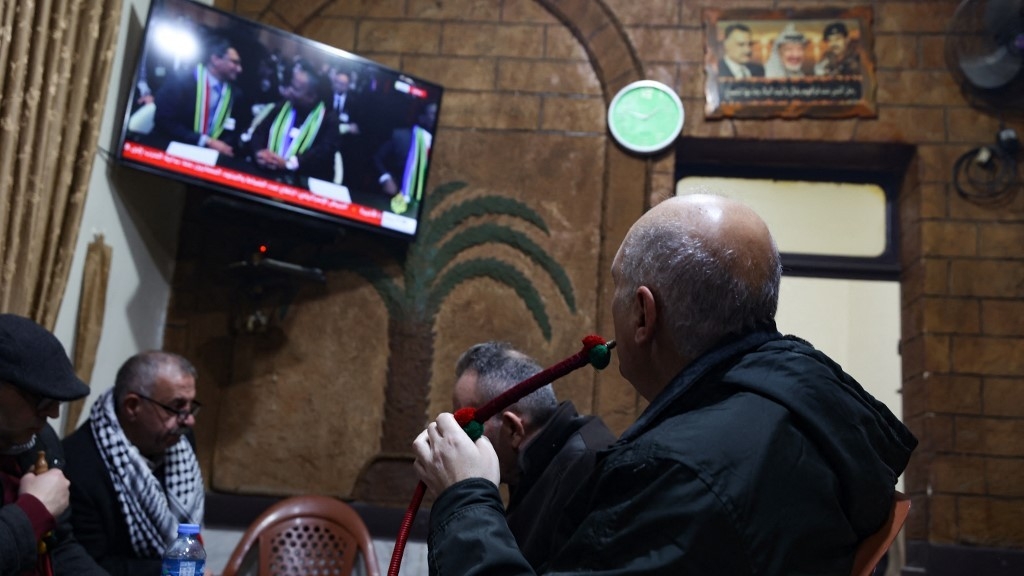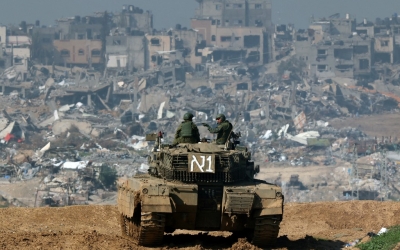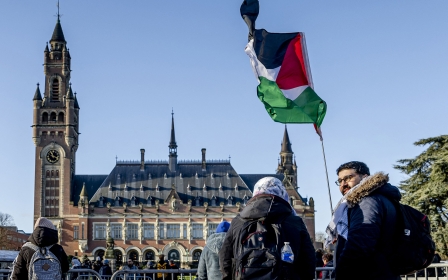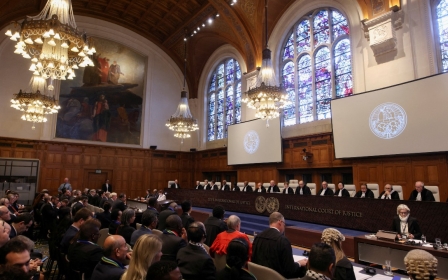War on Gaza: What happens after ICJ's interim ruling on South Africa's case against Israel?

The International Court of Justice on Friday ruled that Israel must prevent civilian harm in Gaza and ensure no acts of genocide take place in the besieged enclave.
In the interim ruling, the ICJ called on Israel to facilitate the delivery of aid into Gaza and prevent and punish incitement to genocide.
This ruling falls short of South Africa's request for measures that would have called for a halt to all military operations in Gaza by Israel.
“The court recalls that its orders on provisional measures have binding effect and thus create international legal obligations for any party to whom the provisional measures are addressed," the court said on Friday.
It added that Israel would be obliged to report to the court within a month on what it was doing to uphold the measures.
New MEE newsletter: Jerusalem Dispatch
Sign up to get the latest insights and analysis on Israel-Palestine, alongside Turkey Unpacked and other MEE newsletters
The court also called on Hamas and other armed groups to immediately release all the hostages they are holding.
Speaking outside the Hague, South Africa's Foreign Minister Naledi Pandor said she was not "disappointed" by the world court's measures, and said provisions put forward by the ICJ would need a ceasefire to work.
But what does Friday's interim ruling mean now for the war in Gaza, and will Israel adhere to it?
No mechanism to enforce compliance
While rulings from the ICJ are legally binding, the court cannot enforce them, as no mechanism can be used to force compliance.
In the short term, states can ask the UN Security Council to act and implement separate sanctions aimed at forcing a noncompliant state to follow the court’s orders.
In the genocide case against Israel, should the latter refuse to comply, there would still be a risk of the US vetoing any Security Council decisions aimed at enforcing ICJ rulings.
The Israeli government has previously said that not even The Hague could stop it from restoring “security to both the south and the north” of the country.
Since 7 October, following a surprise Hamas-led attack on southern Israeli towns, the Israeli air and ground offensive has destroyed much of the densely populated Gaza Strip and killed more than 26,000 Palestinians, the majority of them women and children.
Israel has previously refused to comply with ICJ rulings that labelled its separation barrier with the occupied West Bank as illegal under international law.
What broader effect could the ruling have?
Even if not enforced, a favourable ruling on some or all of South Africa’s provisional measures could apply pressure on Israel and allied governments.
“At this stage, it means only that South Africa has established that there is a plausible risk of genocide, not that there is genocide,” Juliette McIntyre, lecturer in law at the University of South Australia, told Middle East Eye.
“It may have ripple effects for other states; it is an internationally wrongful act to aid or assist in the commission of other wrongful acts, such as genocide.
“States may withdraw military or other support for Israel in order to avoid this. States also have a duty to prevent genocide, which they may take more seriously once the Court has established that it’s a plausible risk.”
How will Israel's allies react?
It remains unclear how Israel's key allies, namely the United States and European allies, will react to the ICJ ruling.
Martin Konecny, who runs the European Middle East Project, said in previous cases, like the ICJ's ruling against Myanmar, Ukraine and Syria, "western states stressed that ICJ provisional measures are binding and must be fully implemented.
"Western government responses to the ICJ order should be measured against [previous] precedents," Konecny said on X.
"I have little doubt that countries like Belgium, Spain, Ireland and Slovenia will be consistent with their previous positions. Far less clear about the US, UK, Germany and others."
The European Union said it expected Israel and Hamas to fully comply with the rulings of the International Court of Justice.
Middle East Eye delivers independent and unrivalled coverage and analysis of the Middle East, North Africa and beyond. To learn more about republishing this content and the associated fees, please fill out this form. More about MEE can be found here.





